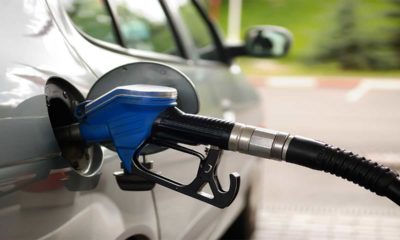The Minister of State for Petroleum Resources, Chief Timipre Sylva, has refuted claim by the Nigerian Upstream Petroleum Regulatory Commission (NUPRC) that measurement inaccuracies in the Nigerian Petroleum industry were responsible for oil Losses in the country.
Sylva maintained his stance that crude oil losses in Nigeria were because of theft and pipeline vandalism and not alleged metering error.
It could be recalled that Investors King had reported that the NUPRC had announced that about 40 per cent of the volumes credited to crude oil losses in the Nigerian petroleum industry were due to measurement inaccuracies and not theft.
NUPRC anchored its claim on a forensic audit it conducted which covered the period of January 2020 to November 2022 on crude theft numbers.
The Chief Executive, NUPRC, Gbenga Komolafe, disclosed that the audit was to ascertain with accuracy the stolen volume of crude oil within the reference period, adding that the commission was committed to dealing with the issue of inaccurate measurements.
Negating NUPRC’s argument, Sylva noted that theft and pipeline vandalism were the causes for the volumes of crude oil losses across the country.
Sylva also attributed the loss of revenue from crude production to theft, pipeline vandalism and decayed infrastructure.
In a statement issued in Abuja by his Senior Adviser, Media and Communications, Horatius Egua, the minister expressed hope that the challenges would be resolved.
He stated that the Federal Government was determined to end the trend through improved investments and security along the major oil and gas pipelines in the Niger Delta region.
Contrary to reports that about 40 per cent of the volumes of crude losses are due to measurement inaccuracies, Sylva maintained that the major sources of crude oil losses have primarily been theft, pipeline vandalism and production deferment as a result of pipeline non-availability.
According to the minister, it is a known fact that the major losses of crude oil in the country have been through theft and destruction of oil pipelines.
He said some of the oil infrastructure is worn out and cannot perform at maximum capacity, adding that there is also the issue of lack of investments in fossil fuel in the country and the drive towards renewable energy has really affected negatively new investments in the sector.
Sylva said the Federal Government had put measures in place to restore sanity in the sector, adding that contrary to the report, the problem associated with crude oil losses were systemic issues, which were being handled with a view to finding permanent solutions.
The minister charged the NUPRC and the Nigerian Midstream and Downstream Petroleum Regulatory Authority (NMDPRA) to collaborate in order to ensure that the constraints to optimal crude oil production were speedily addressed to boost national revenue.
According to him, the Federal Government could not continue to lose revenue through perceived lapses in crude oil production, especially at a time the nation is going through scarce resources.
The minister emphasised that this was not the time to dwell on the mistakes of the past or engage in needless blame games, but a time to close all existing leakages and enable the government get maximum benefits from its crude oil and gas assets.
He said security had improved along the major oil pipelines in the region, calling for sustained efforts by all concerned to maintain maximum crude oil production.
In the midst of the crisis facing the petroleum industry, there has been renewed queues at filing stations owing to paucity of petroleum products in the country.
Oil marketers had warned that the crisis of long queues might return should petrol products are not made readily available to them.

 Education4 weeks ago
Education4 weeks ago
 News3 weeks ago
News3 weeks ago
 Business3 weeks ago
Business3 weeks ago
 Technology3 weeks ago
Technology3 weeks ago
 Investment4 weeks ago
Investment4 weeks ago
 Investment3 weeks ago
Investment3 weeks ago
 Telecommunications4 weeks ago
Telecommunications4 weeks ago
 Banking Sector3 weeks ago
Banking Sector3 weeks ago




























